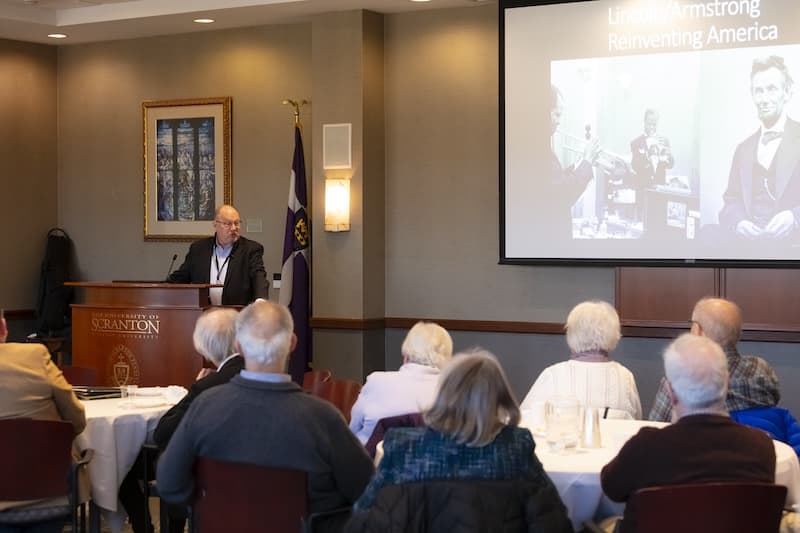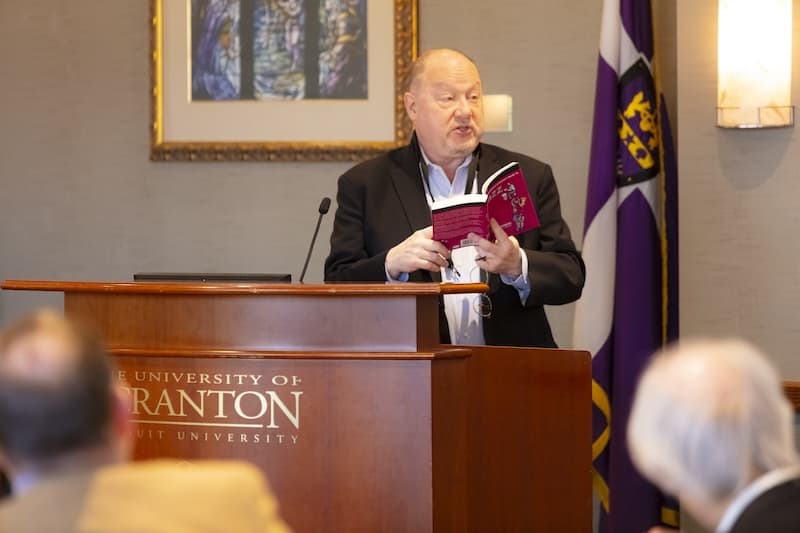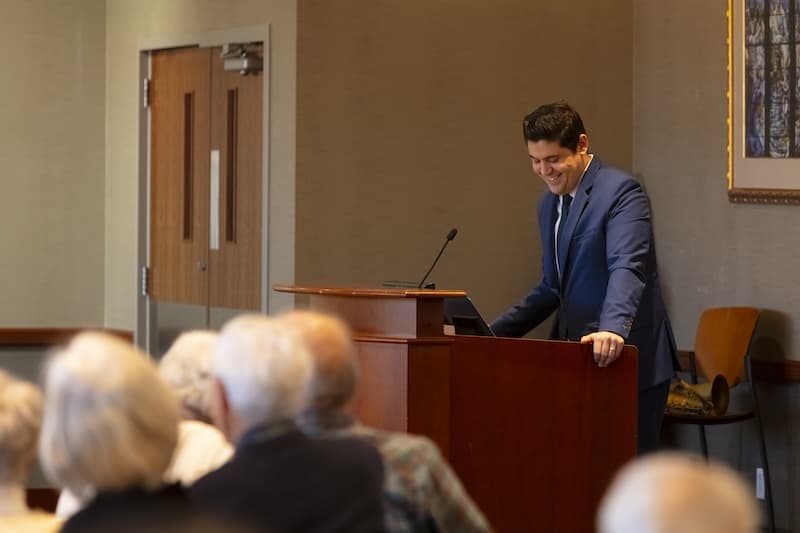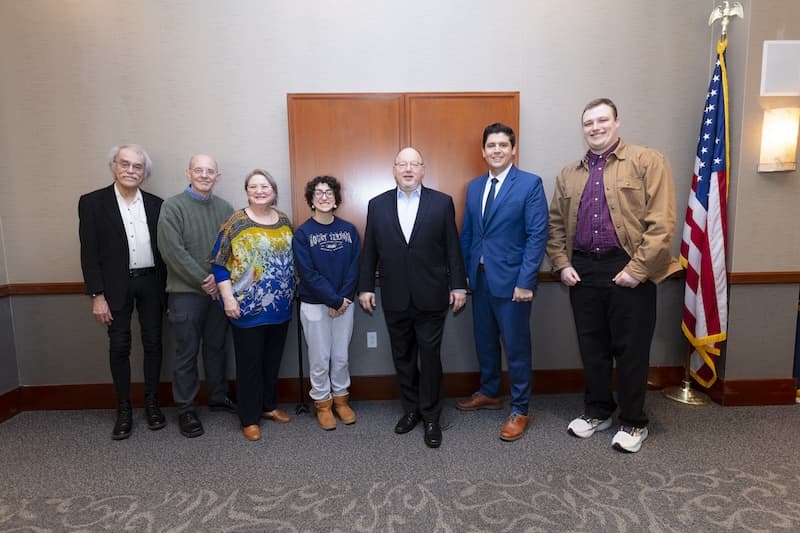Genius of Abraham Lincoln and Louis Armstrong Discussed
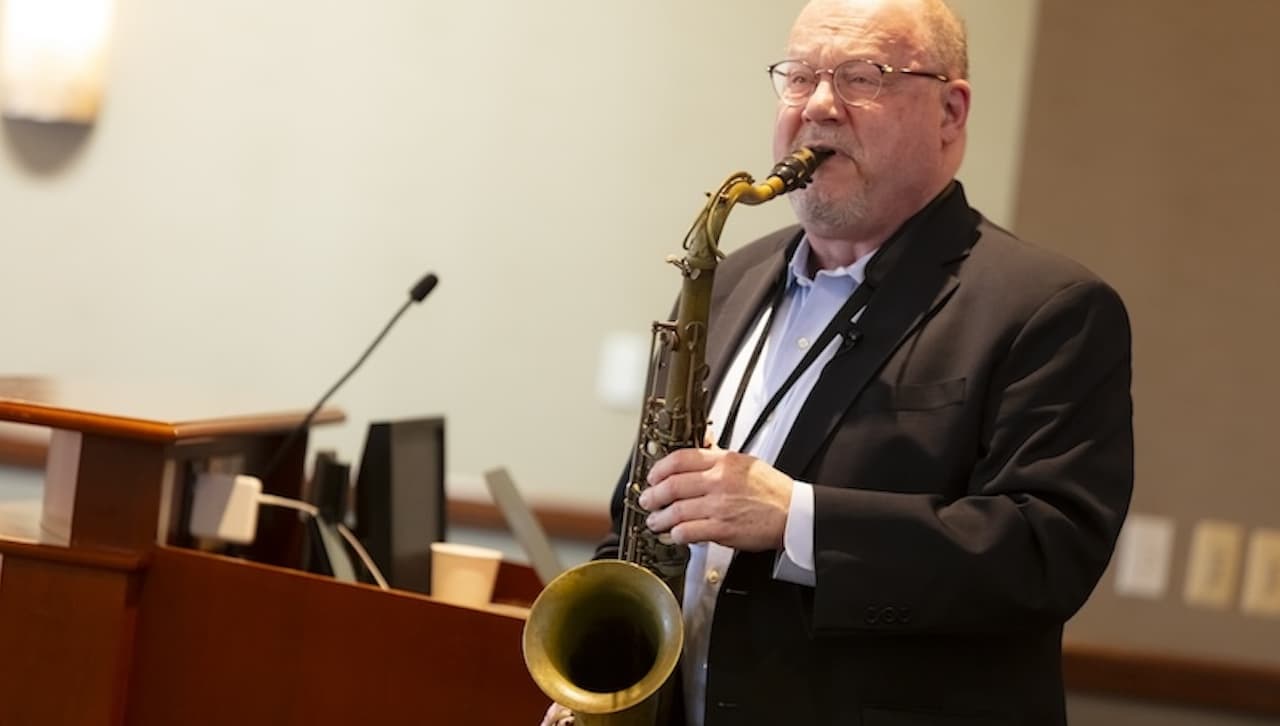
Opening with a brief saxophone solo, acclaimed musician Loren Schoenberg, a senior scholar of the National Jazz Museum in Harlem, faculty member at Julliard, and former instructor at the Manhattan School of Music and the New School, presented “The Lincoln/Armstrong Connection: From Gettysburg to New Orleans” at the Schemel Forum World Affairs Luncheon Seminar on campus. The March 1 luncheon was sponsored by Munley Law.
At the seminar, Schoenberg projected images of Abraham Lincoln and Louis Armstrong, identifying each as a genius who reinvented their respective worlds.
Schoenberg argued that Lincoln reinterpreted the constitution in delivering the Gettysburg Address. Not only was the speech far shorter than a typical speech at that time, but its contents also charted a new path for democracy in addressing what the Civil War was about and how to fix the conflict.
Similarly, Armstrong brought new meaning to the arts as the first musician to truly integrate the Black spiritual music tradition of Black American churches into the pre-existing tradition of jazz. However, as Schoenberg described, many doubted – and perhaps continue to doubt – the genius of each man: “Like those who thought of Lincoln as a country boy with feet too small to fill the shoes of the presidency, there are still those who define Armstrong as no more than a ‘noble savage.’”
To prove Armstrong’s musical genius, Schoenberg began by briefly chronicling Armstrong’s early life. At age nine, Armstrong was arrested for being a supposed suspicious and dangerous character. He was sent to the “Colored Waif’s Home” as a result. While there, Armstrong discovered the trumpet, his mentor, and his natural talent for jazz. As he grew up, he played with a series of bands, including some on riverboats traveling up and back the Mississippi, before recording records of his own, which are considered groundbreaking in nature.
Schoenberg explained that the root of Armstrong’s genius emerged in his understanding of rhythm and his willingness to experiment with changes to a standard rhythm. Although the value of jazz was always downplayed due to its deviance from European composition, Armstrong decided to deviate further, playing the trumpet as if it were a different instrument like a guitar or a drum. In this way, Armstrong strayed from the more rag-time jazz of his time, and committed to a form of jazz that lurches back and forward on the tempo while the tempo remains steady.
In addition to the doubts of the larger community, Armstrong also faced criticism from the Black community. Schoenberg explained that many Black Americans believed Armstrong was pandering to white Americans and that his performances were perceived by many to be ‘minstrelesque’ in nature. Despite these criticisms, Armstrong persisted in his musical pursuits and frequently spoke out against the racial injustices of his day. Schoenberg even noted that when Armstrong was asked to comment on the Little Rock 9, he boldly claimed that the president should go to hell, a comment he refused to retract in a later conference. Schoenberg concluded with a clip of one of Armstrong’s most captivating performances in which Armstrong exemplifies the genius he relentlessly fought to display and that continues to earn his title as one of the greats.



